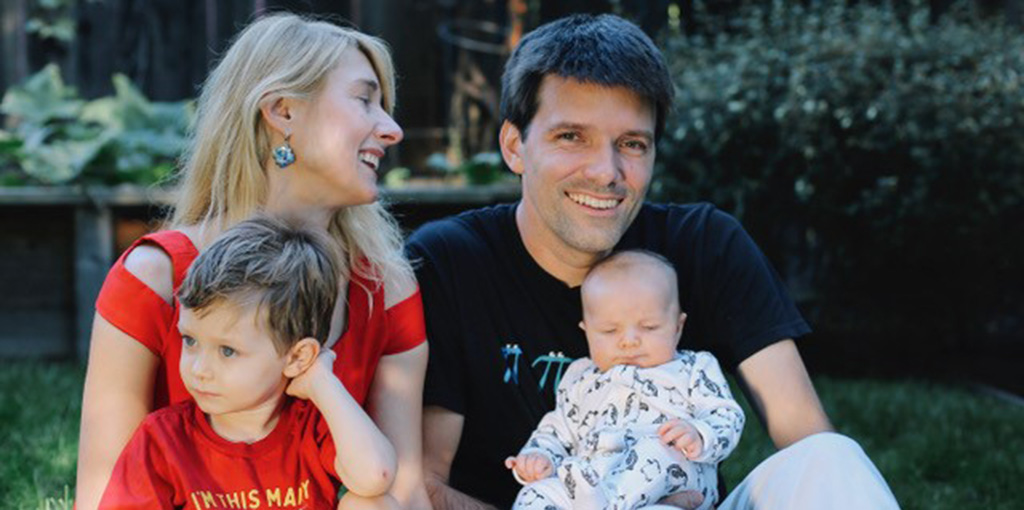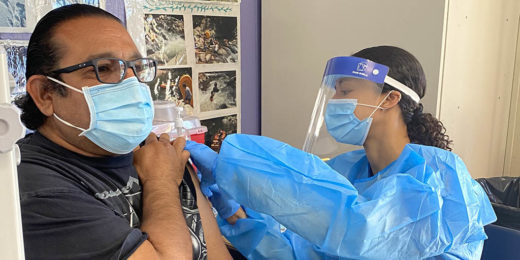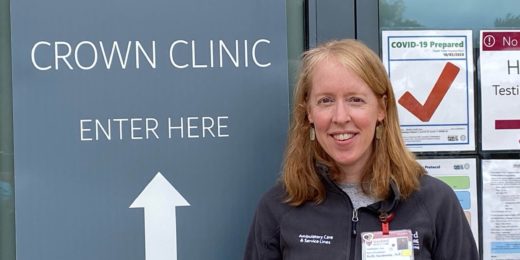As she watched the pandemic unfold, Stanford Medicine immunology researcher Zina Good, PhD, said she followed the coronavirus infection trends among children with growing alarm. She watched as more kids became sick with COVID-19, with at least two children dying every month in the United States.
Moreover, as many as 15% of those infected were developing "long-haul COVID," symptoms that become chronic, often serious, medical problems, she said.
"That got me quite worried," said Good, a postdoctoral scholar in immunology and a mother of two young children. "I saw reports of children who used to play league sports who couldn't play anymore because they were just too tired."
Anxious to protect her children, she enrolled them in Pfizer's COVID-19 vaccine clinical trial for kids. On April 14, her 3-year-old son, Andel, became the first youngster at Stanford Medicine to receive the vaccine; a week later, Soren, then 7 months old, was vaccinated.
Good said she had no trepidation about having her children be part of this clinical trial.
"This vaccine has been very safe and effective in millions of adults now and in thousands of teenagers," she said. "So it didn't seem like there would be a lot of side effects to worry about."
No hesitation about trial
As an immunologist, she had some perspective on what she was getting into. "I felt confident I could have a good understanding of the risks and benefits," she said. "I was confident it would be good for my kids."
Good said her only concern involved dosage levels. As a phase 1 clinical trial, the protocol is designed to assess safety, with the early participants receiving relatively low dosages of the vaccine. Children's vaccines generally contain about half the dosage level of the adult version. For the Pfizer vaccine, the dose for both Andel and Soren was a tenth of the adult vaccine, Good said.
Baby Soren had no reaction to the vaccine, while his older brother had a sore arm and was a bit tired the next day. But, Good said, he quickly recovered.
Stanford Medicine is one of multiple sites around the country participating in the Pfizer trial, which involves children in three different age groups: 5 to 12; 2 to 5; and 6 months to 2, said Yvonne Maldonado, MD, the principal investigator and the Taube Professor of Global Health and Infectious Diseases at the Stanford University School of Medicine.
As many as 500 youngsters are scheduled to be enrolled in the trials at Stanford, Maldonado said, with the first phase being open label, meaning parents and caregivers will know the child is receiving the vaccine. The phase 2 and 3 trials will involve many more children who will be divided into two groups, with some receiving a placebo. All trials are fully enrolled.
Like adults receiving the Pfizer vaccine, the children will have to return in 21 days for their second shots. The investigators will take blood samples so they can test for antibodies, which will show if the vaccines are generating a response that will help the youngsters fend off the virus. If the children don't generate enough antibodies, they can return for a higher dosage, Good said.
A view from the patient's side
Good is a researcher at the Stanford Cancer Cell Therapy Program, led by Crystal Mackall, MD, a professor of pediatrics and of medicine and a pioneer in the field of cancer immunotherapy. Good's job at the center is to evaluate data in adults with lymphoma who receive CAR T-cells, a treatment that mobilizes cells in the immune system to fight off cancer. The goal is to help understand what factors enable CAR T-cells to succeed or fail so researchers can devise better therapies.
"We have trials in immunotherapies, but I've never been on the patient side of it," she said.
Good said her experience was very positive. "I felt lucky because the quality of care here is so good. You get all your questions answered, and all the staff and scientists are excellent," she said.
"I think participating in a clinical trial is important," she added. "Not only can we protect our children but we can also facilitate the trial itself so this vaccine will be available to all families as soon as possible."
Image by Maria Sorokina at SpringInGreen Photography






